
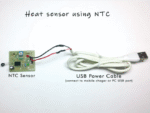



Heat Sensor Using NTC DIY Experiments Science Project Model STEM KIT (Assembled), 100% Tested
₹1,025.00 Original price was: ₹1,025.00.₹599.00Current price is: ₹599.00. + GST
- Heat Sensor Using NTC, Complete assembled kit, 100% tested.
- Full documentation includes circuit diagrams, PCB layout, testing documents, etc.
- Videos available on YouTube for easy understanding.
- https://www.youtube.com/watch?v=07QBYB69fVU
- 100% Support on working days 11 AM – 6 PM, Email us at Smartxbrains@gmail.com.
- Fastest delivery all over India. Perfect for electronics, automation, and educational projects in India. Heat Sensor Using NTC DIY Experiments Science STEM KIT (Assembled), 100% tested ensures reliability and performance.
100 in stock
Abstract:
The Heat Sensor using NTC circuit is designed using a readily available NTC thermistor and a comparator IC LM393. The NTC functions as a temperature sensor, while IC LM393 is used as a comparator. In the absence of heat, there is no rise in temperature of the NTC, leading to no conductivity and an LED staying off. When the temperature rises, the NTC conducts, activating the LED.
Application of the Circuit:
Many NTC-based circuits on the market use costly components and complex circuitry. This Heat Sensor using NTC circuit employs a readily available NTC thermistor, reducing costs and simplifying the setup. The circuit detects temperature and automatically activates the LED when there is a rise in temperature, making it ideal for automation and educational projects.
Why this Circuit:
The NTC thermistor is easy to source and modify for varying temperature ranges. The circuit operates on a 5V DC supply, making it suitable for a wide range of electronic projects.
Explained Working of Circuit:
The circuit uses a dual comparator IC LM393. The NTC thermistor functions as the temperature sensor, which connects to the comparator. When temperature increases, the NTC conducts, activating the LED. In contrast, if the temperature remains low, the LED stays off.
How to Build:
- Read the provided manual thoroughly.
- Study the circuit and PCB layout.
- Identify and solder components onto the PCB, ensuring correct polarity.
- Use IC sockets for easy troubleshooting.
- Test the kit using a 5V DC power source and manually apply heat to the NTC.
ICs Used:
The only IC used here is LM393, a dual differential comparator IC commonly used in temperature-related circuits.
Part List:
- Semiconductors: U1 – LM393 (8-pin comparator)
- Resistors:
- R2 – 10k Ohm (variable)
- R3 – 1k Ohm
- R4 – 1k Ohm
- R5 – 10k Ohm
- R6 – 10k Ohm
- Capacitor: C1 – 1uF
- Miscellaneous:
- D4: NTC thermistor
- D1: Red LED
- D2: Green LED
- 5V USB Cable
- PCB
Key Applications:
Used in electronic circuits, automation, robotics, and educational projects. Optimized for reliable performance in India-specific environments and conditions.
Keywords:
- Heat Sensor Using NTC DIY Experiments Science STEM KIT (Assembled)
- 100% Tested
- buy Heat Sensor Using NTC DIY Experiments Science STEM KIT online
- electronics components
- Heat Sensor NTC kit features
- Heat Sensor NTC applications
- high-quality Heat Sensor NTC STEM KIT.
14 reviews for Heat Sensor Using NTC DIY Experiments Science Project Model STEM KIT (Assembled), 100% Tested
You must be logged in to post a review.
We deliver all across India.
✅ Orders leave warehouse in 1–2 days.
✅ Delivery within 5–10 days after dispatch.
Related products
Theft Alarm Using IR Sensor DIY Experimentsl Science Project Model STEM KIT (Assembled), 100% Tested
-
- Theft Alarm Using IR Sensor – Fully assembled, 100% tested kits.
- Includes full documentation with circuit diagrams, PCB layout, and testing documents.
- YouTube videos available for easy understanding.
- https://youtu.be/PM22ugMH5qg?si=NnmEJLpu6STxz4do
- 100% support available on working days from 11 AM to 6 PM via email (smartxbrains@gmail.com).
- Fastest delivery across India. Ideal for electronics projects, this Theft Alarm Using IR Sensor STEM Kit ensures reliability and performance.
Automatic Water dispenser using IR Pair DIY Experiments Science Project Model STEM KIT (Assembled), 100% Tested
-
- Automatic Water Dispenser Using IR Pair – Complete assembled kit, 100% tested for reliability and performance.
- Full documentation, including circuit diagrams, PCB layout, testing document, etc.
- Videos available on YouTube for easy understanding.
- https://youtu.be/M8C89AUYswI?si=Ldej9P7_MSkKaM6s
- 100% support on working days from 11 AM – 6 PM, email us at Smartxbrains@gmail.com.
- Fastest delivery all over India. Ideal for various electronics projects, Automatic Water Dispenser Using IR Pair DIY STEM KIT ensures quality and performance.
Moisture base watering on/off water pump System DIY Experiments Science Project Model STEM KIT(Assembled), 100% Tested
-
- Moisture-based watering on/off water pump system – Complete assembled kit, 100% tested.
- Full documentation, including circuit diagrams, PCB layout, testing document, etc.
- Videos available on YouTube for easy understanding.
- https://youtu.be/FTUc5eaMeLs?si=mYYI2tvWb9AuLhBX
- 100% support on working days, 11 AM - 6 PM, Email: Smartxbrains@gmail.com.
- Fastest delivery all over India – Ideal for electronics projects, automation, and educational use.
Control Lamp Using IR DIY Experiments Science Project Model STEM KIT (Assembled), 100% Tested
-
- Control Lamp Using IR Sensor Complete assembled Kits – 100% Tested.
- Full documentation, including circuit diagrams, PCB layout, and testing documents.
- Videos available on YouTube for easy understanding.
- https://youtu.be/cC1w8wQZMZI?si=wnP2pkBJsR1oCcUi
- 100% Support on working days (11 AM - 6 PM). Email: smartxbrains@gmail.com.
- Fastest delivery all over India. Perfect for various electronics projects in India, the Control Lamp Using IR DIY Experiments STEM KIT (Assembled) ensures reliability and performance. Ideal for electronics projects, this kit offers quality and performance.
Fire Indication System DIY Experiments Science Project Model STEM KIT (Assembled), 100% Tested
-
- Fire Indication System Complete assembled Kits 100% Tested.
- Full documentation, includes Circuit diagrams, PCB Layout, Testing document, etc.
- Videos are available on YouTube for easy understanding.
- https://youtu.be/v3xl6-t9OYA?si=zLplLC--_4mFizuS
- 100% Support on working days 11am - 6 PM, Email us at Smartxbrains@gmail.com.
- Fastest Delivery all over India. Fire Indication System DIY Experiments Science STEM KIT (Assembled), 100% Tested ensures reliability and performance. Ideal for various electronics projects in India.
Touch Switch With Lamp DIY Experiments Science Project Model STEM KIT (Assembled), 100% Tested
-
- Touch Switch with Lamp Complete assembled Kit, 100% Tested.
- Includes full documentation, circuit diagrams, PCB layout, testing documents, and YouTube videos for easy understanding.
- https://youtu.be/wgNBk1AAEa0?si=_03gIQmEBCwzM_8F
- 100% support available on working days (11 AM - 6 PM) via email: smartxbrains@gmail.com.
- Fastest delivery across India, perfect for various electronics projects.
- Reliable and high-performance STEM KIT designed for educational and automation applications.
Touch Switch DIY Experiments Science Project Model STEM KIT (Assembled), 100% Tested
-
- Complete Touch Switch DIY Science STEM Kit – 100% Tested and ready to use.
- Includes full documentation: circuit diagrams, PCB layout, and testing details.
- Step-by-step video tutorials available on YouTube for better understanding.
- https://youtu.be/wgNBk1AAEa0?si=_03gIQmEBCwzM_8F
- Dedicated support on working days (11 AM - 6 PM) via Smartxbrains@gmail.com.
- Fastest delivery across India – ideal for electronics projects, automation, and STEM learning.
Transformer Vibration Detection DIY Experiments Science Project Model STEM KIT (Assembled), 100% Tested
- Transformer Vibration Detection DIY KIT – Assembled and 100% tested.
- Full documentation, including circuit diagrams, PCB layout, and testing documents.
- Includes YouTube videos for easy understanding.
- 100% support on working days from 11 AM - 6 PM via email: Smartxbrains@gmail.com.
- Fastest delivery all over India. Perfect for electronics projects in India, ensuring reliability and performance.



















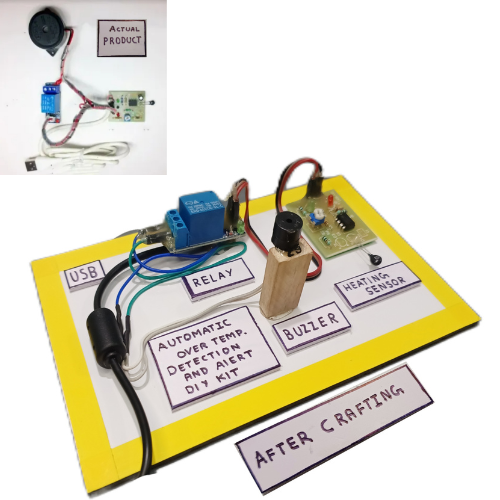

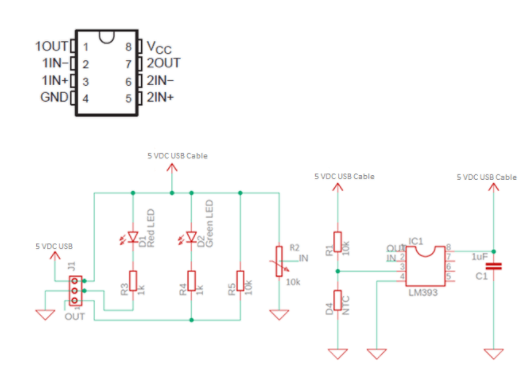






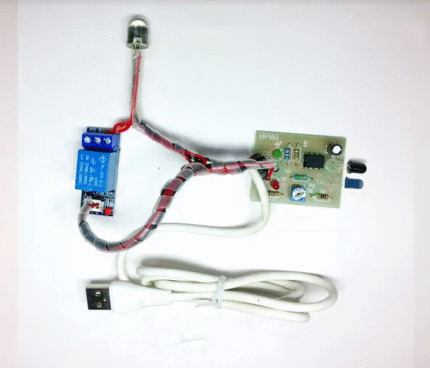
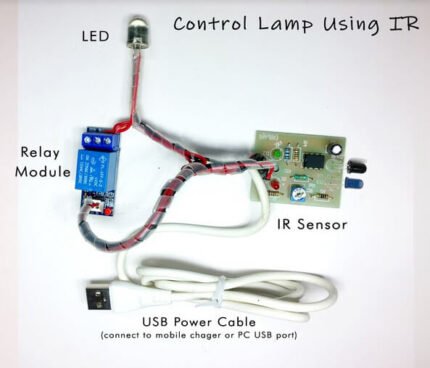



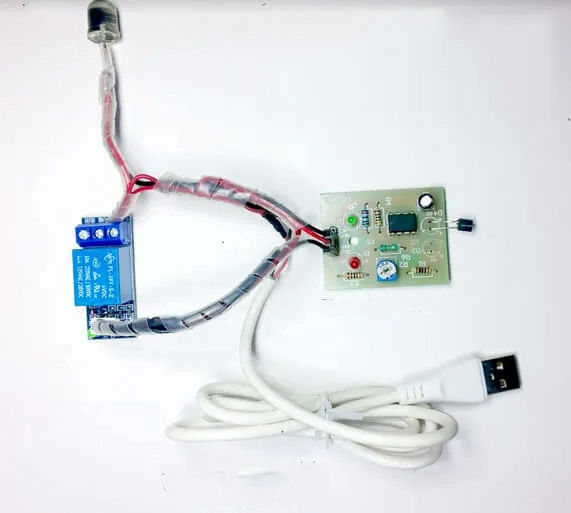



Viral (verified owner) –
Best cost electronic components in India
Rohit (verified owner) –
Good Kit
Akshay (verified owner) –
Online best cost electronic components
Harsh (verified owner) –
Good service.
Ayush (verified owner) –
Good quality.
Shubham (verified owner) –
Best Science project
Rohit (verified owner) –
Less cost than other websites
Priya (verified owner) –
Good support and recommended
Rohit (verified owner) –
Good Kit
Shubham (verified owner) –
Good support and recommended
Roma (verified owner) –
Good support and recommended
Viral (verified owner) –
Very fast delivery.
Paaji (verified owner) –
Online best cost electronic components
Rahul (verified owner) –
Good service.